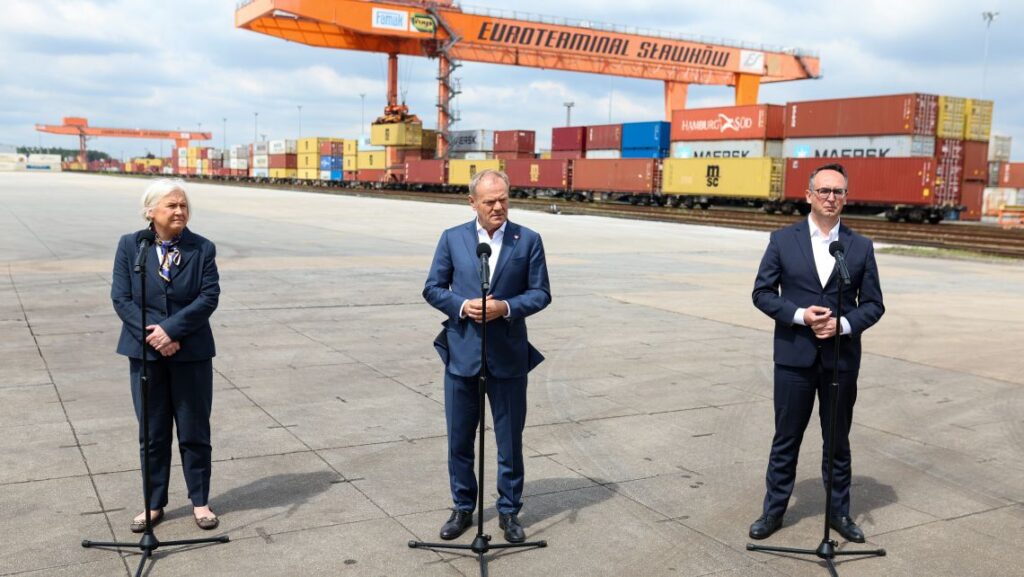SŁAWKÓW (Realist English). Polish Prime Minister Donald Tusk on Monday announced a €1 billion investment plan to expand the Sławków Euroterminal, the European Union’s only broad-gauge rail hub capable of handling freight directly from Ukraine and Central Asia. The move is part of Poland’s broader ambition to become a logistics and reconstruction gateway as regional trade routes shift due to the ongoing war in Ukraine.
“This is a gigantic opportunity opening before Poland,” Tusk said at a press briefing following the signing of the agreement between the state-owned Industrial Development Agency (ARP) and the terminal’s operating company. “Let me be clear: we want to make serious money rebuilding Ukraine — and nobody should be shy about saying that.”
Strategic upgrade for Europe’s “largest dry port”
The plan will increase the terminal’s annual capacity by over 75%, bringing it to more than 500,000 TEUs (twenty-foot equivalent units), according to the Polish Press Agency (PAP). The expansion will be carried out in stages over the coming years, with the aim of transforming Sławków into the core transshipment point for westbound cargo flows from Asia and Ukraine, bypassing conflict-prone eastern routes.
“Logistics is the key to business,” said Wojciech Balczun, head of ARP. “Sławków will be Europe’s largest dry port and an anchor point for freight corridors that will reshape the continent’s supply chains.”
Infrastructure Minister Dariusz Klimczak echoed this sentiment, emphasizing that the project would “secure Poland a central role in handling cargo flows across Europe,” positioning the country as a long-term beneficiary of postwar trade and reconstruction.
National interest and foreign pressure
Tusk made clear that the Polish government considers the terminal a strategic national asset, signaling that foreign takeovers or control would not be tolerated. “This hub must remain under Polish control,” he stated, amid growing international interest in the project’s role as a logistics chokepoint.
With its broad-gauge infrastructure — inherited from Soviet-era rail design — the Sławków terminal offers a rare advantage in integrating Ukrainian and Eurasian cargo flows with Western European markets without the need for time-consuming gauge changes at the border.
Poland is making a bold logistical play, transforming itself from a transit country into a continental cargo gatekeeper. By investing in Sławków, Warsaw is not only securing a foothold in Ukraine’s eventual reconstruction, but also staking a claim on east-west trade flows that will define the postwar economic map. This is infrastructure diplomacy with real strategic weight — and Poland appears determined to keep it firmly in national hands.
